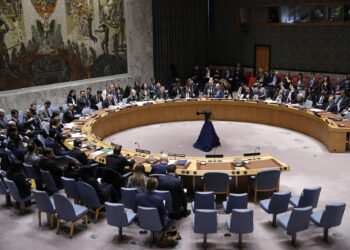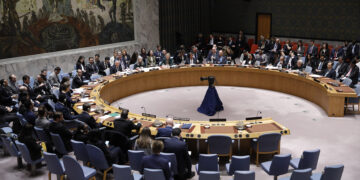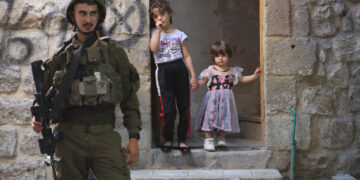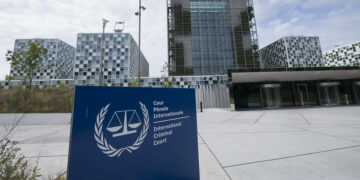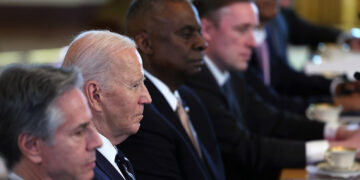Landmark Workshop Examines Responsibility of Human Rights Organizations in Failing to Challenge Militarized Legal Strategies and Humanitarian Interventions
(Washington, D.C., August 3, 2022) – Democracy for the Arab World Now (DAWN) urged human rights organizations working on issues related to armed conflict to reform their current approach focusing on narrow questions of legal compliance with international humanitarian law by warring parties while avoiding more pressing questions of belligerence and militarism.
DAWN published its recommendations from Human Rights Go to War, an expert workshop it convened earlier this year, and encouraged human rights organizations to adopt a more holistic approach to international law during armed conflict that prioritizes human rights, especially the right to life, and recognizes the harmful impact of foreign policies championing uncritical military support, including weapons sales to abusive governments, and permissive legal strategies that greatly ease the legal burden to resort to military force.
"By emphasizing narrow technical questions of compliance with international humanitarian law instead of broader policy and political considerations, human rights organizations risk perpetuating an unquestioned acceptance of armed conflict and overly militarized foreign policies," said Sarah Leah Whitson, Executive Director of DAWN. "An alternative approach—one that critically examines use of force claims and opposes foreign policies predominantly based on military power—could result in less violence and a greater respect for human rights, especially in regions such as the Middle East and North Africa that are reeling from decades of disastrous foreign military intervention."
On May 13, 2022, DAWN and the Schell Center for International Human Rights at Yale Law School co-sponsored Human Rights Go to War, an expert workshop of more than 30 legal scholars, human rights practitioners, and foreign policy experts working at the intersection of international law, armed conflict, human rights, and foreign policy. This by-invitation workshop was conducted under Chatham House rule, meaning that participants were free to use the information received, but neither the identity nor the affiliation of the speakers, nor those of any other participant, could be revealed. This format allowed for frank and open debate on how human rights organizations could best engage in questions related to armed conflict.
The workshop sought to assess the successes and failures of the dominant approach for working on international law and human rights issues related to armed conflict, particularly after the last 20 years of protracted armed conflict, Forever War, and multiple military interventions throughout the Middle East and North Africa. With a group of experts deeply invested in the legal and policy issues surrounding the current approach, as well as possible alternatives, the workshop served as an especially ripe time to ask whether there is not a better way to engage on these matters.
"Human Rights Go to War provided a truly interdisciplinary forum for leading academics and practitioners to question the dominant approach to how human rights organizations engage in the policy debate and legal discourse surrounding human rights and armed conflict," said John Hursh, Program Director at DAWN. "Legal and policy experts from the Middle East, Europe, and North America provided a diverse range of opinions and constructive approaches to challenging the failed policies resulting from decades of military intervention and Forever War."
The first workshop session explored whether human rights organizations perpetuate an acceptance of armed conflict and militarized foreign policies by focusing exclusively on international humanitarian law compliance and limiting their investigations to the conduct of warring parties and the means of warfare, and whether an alternative approach, namely addressing the legality of the use of force or opposing war and militarism more generally, could produce better outcomes. The second session examined humanitarian intervention and whether human rights and advocacy organizations should support these military interventions as a mechanism to advance humanitarian interests even in extreme situations.
To spur further debate on these important questions, DAWN will publish a selection of articles stemming from this workshop in its journal, Democracy in Exile. DAWN's policy recommendations and workshop report detailing the proceedings of the event are available on the Human Rights Go to War landing page.
Human Rights Go to War is the second foreign policy workshop convened by DAWN. In 2021, DAWN and the Center for International Studies at the Massachusetts Institute of Technology (MIT) co-sponsored Debating Aid Conditionality, which examined the principles, effectiveness, and possible harms of conditioning U.S. arms transfers and economic and diplomatic support to abusive governments in the MENA region based on human rights improvements. DAWN anticipates convening a third foreign policy workshop on sanctions and sanction policy in 2023.













